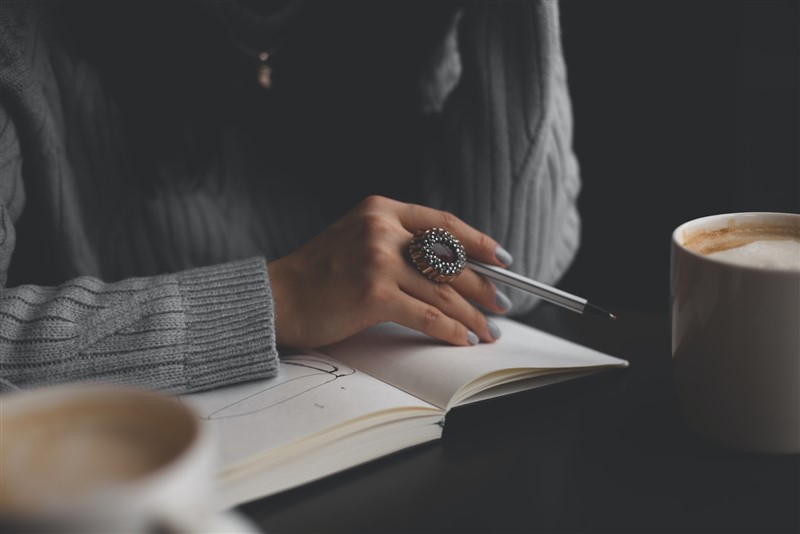Drank is the past tense form of drink, while drunk is the past participle. “Have drunk” is grammatically correct. “Have drank” is not.
-
 Alanna Madden
Alanna Madden
-
 April 19, 2021
April 19, 2021
-
 Grammar Tips
Grammar Tips
 April 19, 2021
April 19, 2021
 Grammar Tips
Grammar Tips
Drank is the past tense form of drink, while drunk is the past participle. “Have drunk” is grammatically correct. “Have drank” is not.
The verb drink is one of the most confusing irregular verbs to learn in the English language (especially for younger kids). Like all irregular verbs, the word drink does not adhere to typical conjugation patterns.
Instead of writing “dranked” (with the typical -ed ending), we use “drank” as the past tense form. So where does that put “drunk”?
Modern English grammar uses drunk as the past participle form of drink. However, there was a time when drunk was appropriate for the past tense, and drank was the past participle form.
Even native speakers find themselves confused because they associate the adjective “drunk” with intoxication (or drinking too much alcohol in the past tense).
In any case, both drank and drunk describe drinking in the past. The difference is that we use “drunk” for the past, present, or future perfect tenses, and we only use “drank” for the simple past tense.

An easy way to check if you’re using drank and drunk correctly is to look for the auxiliary verb “have.” Since we use the past participle drunk for the past, present, and future perfect tenses, the verb “drunk” needs to follow:
If there’s no form of “have” before the verb drunk, it’s grammatically incorrect. Likewise, there should not be an auxiliary verb in front of “drank” because we only use this term for the simple past tense:
Of course, people still say or write sentences with “have drank,” and most English speakers don’t have an issue with it. However, if you’re writing for a formal setting, it’s best to stick with standard English rules.
The word drink is an irregular verb and noun. The verb drink means to swallow, absorb, or consume something (typically a liquid). For example,
The verb drink can also mean ‘to toast,’ ‘to consume alcoholic beverages,’ or ‘to become intoxicated.’ For example,
While using the verb drink, we can use the following verb forms:
As a noun, the “drink” is any liquid swallowed or absorbed. For instance, if someone said, “I need a drink of water,” the “drink” is literally a sip or single serving of said liquid. Likewise, the question “Would you like a drink?” implies several beverage options, whether it’s water, juice, soda, or milk (but most of the time, it’s alcohol).
As an adjective, the word drunk (also drunken) describes someone as intoxicated or “under the influence,” as they say. For example,
Blasted, blitzed, boozy, canned, drunken, gassed, hammered, impaired, inebriated, intoxicated, lit, loaded, oiled, plastered, sloshed, smashed, soused, tanked, tipsy, wasted, wet, wiped out.
The noun drunk references a drinking spree or someone prone to consuming too much alcohol. For example,

The most difficult part of using the verb drink involves using the correct verb form. But when it comes to drank vs. drunk, there are only three tenses to memorize. Let’s take a look:
The verb drunk belongs to the perfect tense, which means it needs to follow the auxiliary verb “have.”
Present perfect: “He is said to have drunk ten beers in one sitting.”
Past perfect: “Nearly all students had drunk alcohol by their sophomore year.”
Future perfect: “By the time they return, they will have drunk all their beer.”
We use “drink” for the infinitive form ‘to drink’ or within the present and future tense. When writing for the future tense, the verb drink follows “will.”
Infinitive: “Sad movies make me want to drink.”
Present tense: “Should we drink now or wait until later?”
Future tense: “Our friends will drink if we offer them wine.”
The verb “drank” is exclusive to the simple past tense. For example,
“Drinking” is the present participle of the verb drink, so we use it for all continuous and perfect continuous tenses.
When writing for the present or past continuous tense, “drinking” follows the auxiliary verb “be.” For the future continuous tense, make sure “drinking” follows “will” + “be.”
Present continuous: “I don’t know about you, but I am drinking tonight.”
Past continuous: “She was drinking tea last night.”
Future continuous: “They will be drinking later tonight.”
For the present and past perfect continuous tense, “drinking” follows two auxiliary verbs: “have” + “be.” Once we step into the future perfect continuous, there are three auxiliary verbs: “will” + “have” + “been.”
Present perfect continuous: “I have been drinking, so I’m calling a cab.”
Past perfect continuous: “We took her keys because she had been drinking.”
Future perfect continuous: “They will have been drinking by then.”
Do you enjoy learning about English grammar? If so, check out The Word Counter’s weekly lessons on topics, such as:
Check yourTest how well you understand the difference between drank and drunk with the following multiple-choice questions.
1. True or false?: The phrase “have drunk” is nonstandard.
a. True
b. False
2. English never uses drank or drunk as an ___________.
a. Irregular verb
b. Adjective
c. Noun
d. Adverb
3. ___________ is the past participle of drink.
a. Drank
b. Drunk
c. Drinked
d. Drinks
4. ___________ is the past tense of drink.
a. Drank
b. Drunk
c. Drinked
d. Drinks
5. The use of “drank” as a verb requires ___________.
a. A conditional statement
b. An auxiliary verb
c. Prepositions
d. None of the above
6. English uses the word drunk for the ___________.
a. Present perfect tense
b. Future perfect tense
c. Past perfect tense
d. All of the above
Choose the correct words for the following example sentences:
7. “How much did you _________ last night?”
a. Drunk
b. Drank
c. Drink
d. Drunked
8. “There’s no way I’m _________ warm sherbet.”
a. Drinking
b. Drank
c. Drunk
d. Drink
9. “Since I don’t _________, I _________ water all night.”
a. Drank, drink
b. Drink, drunk
c. Drink, drank
d. Drunk, drank
Answers